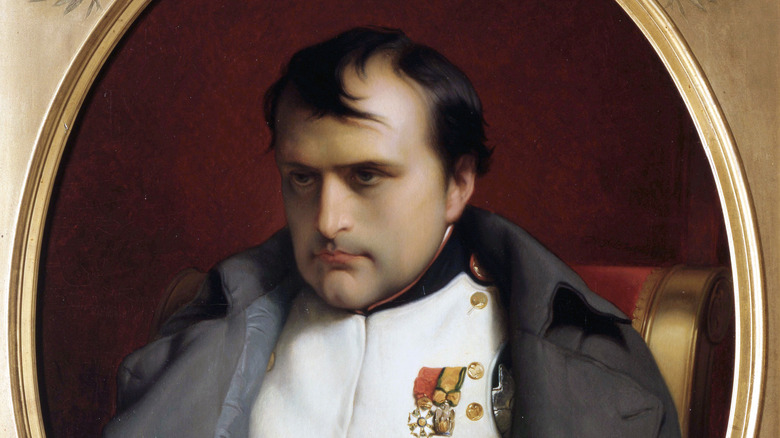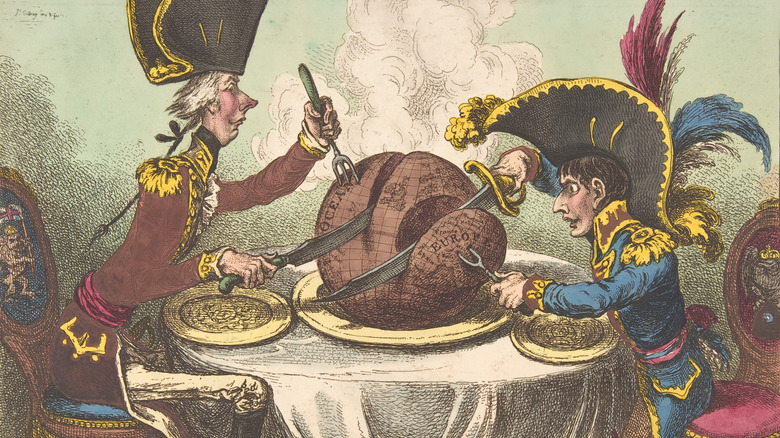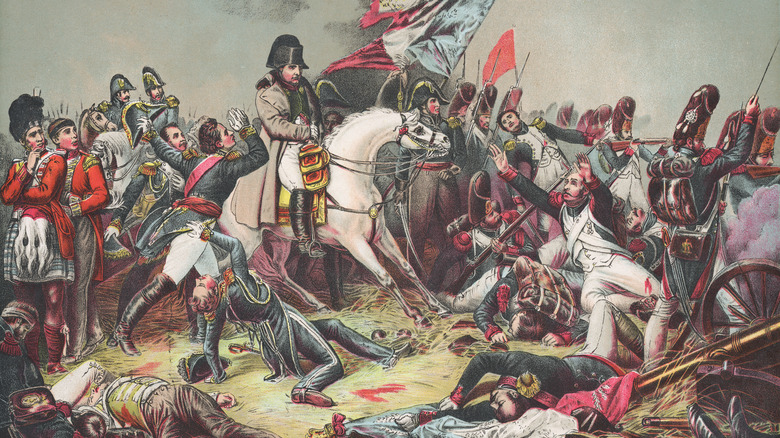Did Napoleon Have Narcissistic Personality Disorder?
Napoleon was about to lose it all. What was left of his decimated Grand Army, once the largest fighting force ever gathered at 500,000 strong, limped home to France following the disastrous Russian campaign in 1812 in what marked the beginning of the end for the emperor of France, according to "Napoleon's tragic march home from Moscow: Lessons in hubris." One of his generals, M. de Fezensac, called Napoleon "a supreme egoist" in his "The Russian Campaign, 1812" and blamed the emperor for the defeat. "Never did the gods punish hubris so severely," he commented.
What the general called hubris, modern psychologists have labeled narcissistic personality disorder (NPD). This condition is marked by arrogance, a need for admiration, a lack of empathy, and a sense of entitlement, among other symptoms, per the Cleveland Clinic. One study found Napoleon "strongly exhibited behaviors consistent" with NPD with enough symptoms to qualify as having the disorder under the current diagnostic standards, per "The Eagle Falters: Napoleon's Psychological Burdens." Napoleon also exhibited other possible mental health conditions including depression.
Myth and reality
For years people believed it was Napoleon's diminutive stature that drove his dramatic rise to power and ultimate defeat, but "Napoleonic Complex," as it came to be termed, is little more than a myth. Napoleon was of average height and the idea that shorter men are more aggressive is rooted in a type of discrimination called "heightism," according to National Geographic.
Napoleon's behavior wasn't based on his height but rather may have been due to a mental health condition. In a 2019 study, five trained psychologists relied on first-hand reports and Napoleon's statements to make their diagnosis, per "The Eagle Falters." They found Napoleon exhibited seven of nine behaviors consistent with NPD, two more than required to diagnose the condition. They admitted the study wasn't definitive since they couldn't be in the same room as Napoleon. The psychologists also found that Napoleon exhibited symptoms of bipolar depression or Major Depressive Disorder. "Thus, Napoleon may have experienced a series of unpredictable emotional highs and lows, alternating manic episodes of varying degrees with depressive experiences and self-doubt," military historian Ed Cross wrote in "The Eagle Falters."
Major Depression or Bipolar disorder
The five psychologists weren't alone in their assessment of Napoleon's potential bipolar disorder. In "A Brotherhood of Tyrants: Manic Depression and Absolute Power" authors D. Jablow Hershman and Dr. Julian Lieb posit that Napoleon had what is now called bipolar disorder, which helped fuel his rise to power with devastating results. "Napoleon's manic ambitions launched a succession of wars that left millions of soldiers and civilians mutilated, crippled, diseased, or dead in Europe and Russia," they wrote.
Bipolar disorder can blunt a person's sense of empathy, according to Medical News Today. Napoleon displayed a lack of empathy throughout his military campaigns, summarily executing captives, razing villages, and killing civilians, according to "A Brotherhood of Tyrants." Napoleon's many "complexes," including a "hyper-sensitivity to criticism" both pushed him to attain the pinnacle of power and would help drive his defeat, according to History. Following his calamitous invasion of Russia, which came about after Tsar Alexander refused to bend to Napoleon's will, Napoleon's continued need to demonstrate his power through war rather than negotiation ultimately cost him his empire.
If you or someone you know needs help with mental health, please contact the Crisis Text Line by texting HOME to 741741, call the National Alliance on Mental Illness helpline at 1-800-950-NAMI (6264), or visit the National Institute of Mental Health website.


